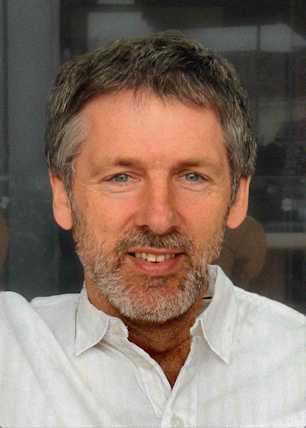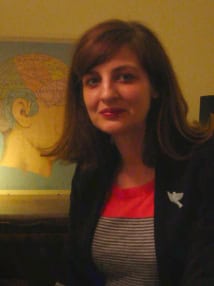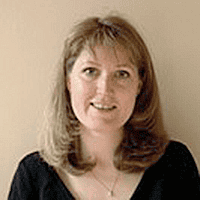Join us at the Barbican in London this weekend for two free live I’m a Scientist events giving you the chance to quiz real neuroscientists on the brain.
Neuroscientists will be on stage taking audience questions at 3:45pm on Saturday and again at 3:15pm on Sunday as part of the Barbican Weekender. Each day, five scientists will compete for the votes of the audience to win a place in the final which takes place on the evening of Tuesday 9th April in Cinema One at the Barbican.
Meet the NeuroScientists
Saturday:
 Thomas Butts – Kings College London
Thomas Butts – Kings College London
We study the evolution of the brain and its associated nerves – how does the developing embryo make neurons that allow it to sense the world around it? and how did it evolve new neurons, and in really large numbers?
 Martin Coath (@mcoath) – University of Plymouth
Martin Coath (@mcoath) – University of Plymouth
I write computer programs and help to design machines that are “neuromorphic” – that is they work in the same way as the brain. In particular I model the way in which we process sound in the ear and in the brain. This is a complex and controversial issue that is not as well understood as many workers in the field like to believe. This work could be called “computational neuroscience” but because we also transfer our ideas in to silicon chips that incorporate silicon neurons it also falls under “neuromorphic engineering”.
 Irene Jacobsen (@RIJacobsen) – Kings College London
Irene Jacobsen (@RIJacobsen) – Kings College London
I’m interested in the way the adult brain forms new connections between neurons, and my PhD focuses on why only some new connections are kept. Why are some new connections removed soon after they have been formed, and what processes are involved in creating new stable connections?
 Sarah Jarvis – Imperial College London
Sarah Jarvis – Imperial College London
I’m working in a neuroscience group where we’re trying to understand why the brain is built the way that it is, using a new technique called optogenetics (which is quite nifty, actually – you insert light-sensitive proteins from bacteria into neurons, which means you can record or stimulate groups of neurons by turning a light on or off. Really ingenious idea). My own work is actually done from behind a computer – I make models of networks of neurons, to identify certain principles and test out different scenarios. Much like a battle enthusiast, trying to reconstruct and replay different versions of battles, to work out why the winning tactic was successful.
 Esha Massand – Birkbeck, University of London
Esha Massand – Birkbeck, University of London
I am interested in human development. I study the electrical activity in the human brain during various cognitive tasks, and its response to various kinds of stimuli. I want to understand where and when the neurons of the brain ‘fire’ given different scenarios, for example in typically developing individuals where memory is impoverished, or if the individual has Down syndrome or a neurodevelopmental disorder such as Autism.
Sunday:
 Amy Birch (@amy_goodgorilla) – Imperial College London
Amy Birch (@amy_goodgorilla) – Imperial College London
I study the role that inflammation plays in Alzheimer’s disease (AD). I use mouse models of AD and treat them with drugs that either decrease or increase the activity of astrocytes in the brain and study their effects on the symptoms of AD.
 Jonathan Webb (@jjbw) – University of Oxford
Jonathan Webb (@jjbw) – University of Oxford
I study how the brain processes sound, as a PhD student in the Auditory Neuroscience Group at Oxford. In particular I’m looking at multisensory inputs to the auditory cortex. I’m also a 2013 Famelab UK finalist.
 Eva Feredoes – University of Reading
Eva Feredoes – University of Reading
I’m interested in where and how in the brain short-term memory occurs. We think that the frontal part of the brain tells regions in the back when it’s important to remember something. And it also appears that distractors might be the key reason why we forget, by overwriting the information we should be remembering. My aim in studying short-term memory is to try and improve my own…it’s appalling!
 Mark Horowitz – Kings College London
Mark Horowitz – Kings College London
I am a training psychiatrist from Australia, doing a PhD related to the molecualr causes of depression. Our lab focuses on the role of stress and inflammation in the development of depression. I am using a human hippocampal stem cell model to understand what effect stress hormones, inflammation and antidepressants have on the brain.
 Catherine Loveday – University of Westminster
Catherine Loveday – University of Westminster

